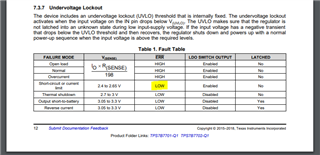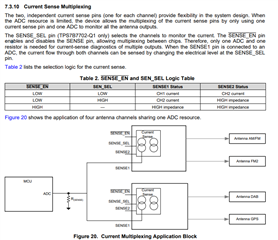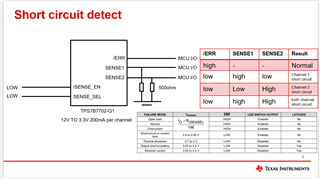Hi team,
My customer wants to use TPS7B7702-Q1 to output 2 supply rail. However, they do not have much ADC resource, they do not want to connect the sense pin to ADC.
Now they only want to know the short circuit fault. They connect these two rails to different loads, and they need to know which load has a short circuit problem when /ERR is pulled down. If they just connect the /ERR pin to GPIO, they can only know when the short circuit happens, but they want to know which output rail has a short circuit problem. Is it possible?
From the datasheet, I can only know that /ERR pin triggers when any rail has a short circuit problem. Can I identify the exact rail by GPIO? For example, I set the Rsense to a small value, like 1k ohm. Then, when in normal status, the sense output should be 1V(200mA output). In 3.3V GPIO logic, it should be a low-voltage. And when in short circuit, it changes to 2.4V, it should be a high-voltage in 3.3V GPIO logic. Is it feasible?


Regards,
Peter



